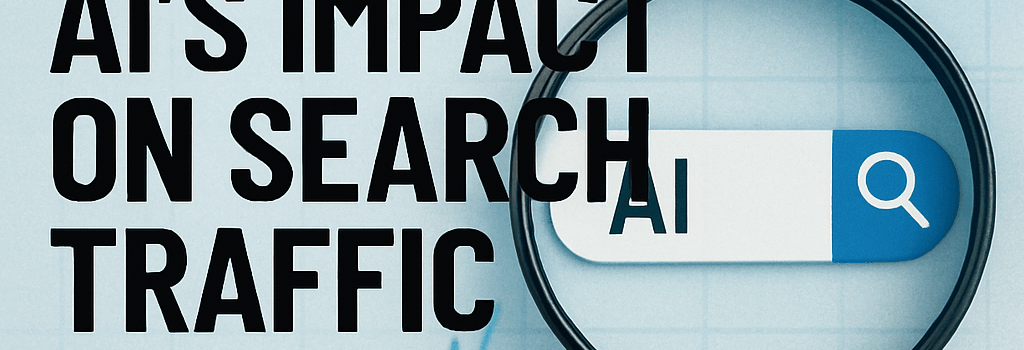Pew Study Reveals AI’s Impact on Search Traffic

Google’s integration of AI-generated summaries—branded as AI Overviews or the Search Generative Experience (SGE)—has revolutionized the search experience but at a substantial cost to web traffic. A new analysis by the Pew Research Center shows that AI Overviews are cutting click-through rates nearly in half, raising urgent questions for content creators, SEO experts, and the broader web ecosystem.
Background on Google’s AI Overviews
First tested in May 2023, Google’s SGE leverages the Gemini family of large language models (LLMs) to synthesize search results into concise, at-a-glance summaries. By July 2024, AI Overviews appeared atop both desktop and mobile SERPs worldwide. Google claims these summaries merely complement links, yet site owners have reported significant traffic declines.
Pew Research Center Findings
Drawing on a representative sample of 900 users from the Ipsos KnowledgePanel in March 2025, Pew’s analysis reveals:
- Baseline click-through rate (CTR) on SERPs without an AI Overview: 15%.
- CTR on pages containing an AI Overview: 8%—a near 47% drop.
- Only 1% of AI Overviews generate a click on a cited source.
- Sources in AI Overviews are most commonly Wikipedia, YouTube, and Reddit, accounting for 15% of all citations.
- Sessions end immediately after viewing an AI Overview 30% more often than after a standard SERP.
“Generative summaries are undoubtedly convenient, but this data confirms they’re cannibalizing site traffic and potentially propagating errors if users stop their search there,” says SEO expert Rand Fishkin.
Technical Architecture of AI Overviews
AI Overviews run on Google’s proprietary Gemini 1.5 and 1.6 models, each with an estimated 25–50 billion parameters and an 8,192-token context window. The pipeline combines retrieval-augmented generation (RAG) with page intelligence APIs that fetch real-time content from indexed pages. Internally, search queries are embedded into a high-dimensional vector space, compared against precomputed page embeddings, then distilled into a structured summary with pros, cons, and key facts.
Google’s models dynamically weigh freshness, authority signals (PageRank, Core Web Vitals), and user intent probabilities to choose which sources to cite. Despite advances in hallucination mitigation—such as contrastive learning and post-generation validation—errors still slip through roughly 5% of the time according to a 2025 internal Google memo.
Impact on SEO Tools and Webmasters
Third-party analytics firms confirm Pew’s findings. Ahrefs reports a 40% average drop in organic clicks for sites historically ranking in positions one through three on query terms now triggering AI Overviews. Semrush logs a 25% decrease in impressions for long-tail, question-style searches—precisely those most likely to surface generative answers (60% of question queries as of June 2025).
Webmasters are scrambling to adapt:
- Many are restructuring content with rich snippets and schema markup to win featured answers.
- Publishers are diversifying traffic via newsletters, podcasts, and social media channels.
- Some are experimenting with first-party AI chat widgets to retain engagement on-site.
Future Outlook and Mitigation Strategies
Google shows no sign of throttling back. As of mid-2025, AI Overviews appear in 1 in 4 searches and continue growing. Meanwhile, EU and US regulators are evaluating transparency mandates, potentially forcing disclosure of AI-generated content provenance.
Recommendations for Web Publishers
- Optimize for the AI pipeline: enhance on-page signals such as structured data, E-A-T (Expertise, Authority, Trustworthiness), and page speed.
- Leverage Search Console insights: monitor which queries trigger Overviews and adjust content focus accordingly.
- Invest in direct engagement: build email lists, loyalty programs, and community platforms to bypass SERP dependency.
Conclusion
The Pew Research Center’s findings underscore a seismic shift in information consumption. While users gain efficiency, publishers face a tougher climate as AI Overviews redefine click behavior. Adapting to this new era will require technical finesse, diversified strategies, and close attention to evolving search regulations.